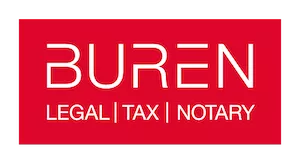- within Tax topic(s)
- in European Union
- with readers working within the Retail & Leisure industries
- in European Union
- in European Union
- in European Union
- in European Union
- with readers working within the Utilities industries
- within Privacy and International Law topic(s)
Introduction
On Budget Day, 16 September, the Dutch caretaker government presented the 2026 Tax Plan along with several accompanying legislative proposals, most of which are scheduled to enter into force on 1 January 2026. Given the caretaker status of the government, the scope of the proposals is relatively limited and their overall impact is modest. This Tax Alert highlights the most relevant changes in Dutch tax law that are relevant in an international context.
Important notice
This publication is merely intended to provide general information. It does not aim to provide any legal advice and should not be taken as such. The information has been put together with the utmost care, but no guarantee can be given with regard to its accuracy and completeness. BUREN N.V. and its affiliated companies (BUREN) hereby expressly disclaims all liability whatsoever for the accuracy and completeness of the information in this publication.
All rights reserved. No part of this publication may be reproduced, distributed, disseminated or transmitted in any form or by any means, electronic, mechanical, photocopying, recording, or otherwise, without the explicit written permission of BUREN.
Lucrative interest regime
The lucrative interest regime applies to the taxation of financial interests which originate from for example carried interest schemes or management participation plans. Benefits from a lucrative interest yield substantial returns that are not proportionate to the investment or the risk incurred.
Lucrative interests are generally taxed in Box 1 at progressive rates of up to 49.5%. Alternatively, an individual taxpayer may structure a lucrative interest by interposing a (holding) company in which a substantial interest (at least 5%) is held. In such cases, income realized by the interposed company may be exempt from corporate income tax under the participation exemption rules. This structure, which is commonly used in practice, is permitted only if at least 95% of the lucrative interest income received by the holding company is subsequently distributed to the taxpayer. In that event, taxation takes place under Box 2 at a progressive rate of 31%, which is considerably lower than the 49.5% rate applicable in Box 1.
Under the legislative proposal, the tax base of the benefit received in such indirectly held lucrative interest scheme will be increased using a 36/31 multiplier to align taxation with the Box 3 rate. The proposal is set to take effect on 1 January 2026, with no exceptions or grandfathering for existing indirectly held lucrative interest arrangements.
Extension grandfathering transitional rules fund for joint account
As of 1 January 2025, new rules on the tax classification of Dutch and foreign legal entities have taken effect, determining whether an entity is treated as transparent or opaque for Dutch tax purposes. Consequently, the classification of certain entities has been switched, transitioning from opaque to transparent, or vice versa.
Under the new rules, Dutch limited partnerships (commanditaire vennootschap, CV) and their foreign equivalents may, subject to conditions qualify as a fund for joint account (Fonds voor Gemene Rekening, FGR) which is treated as opaque for Dutch corporate income tax and withholding tax purposes. Reference is made to our earlier tax alert.
Whether such limited partnership qualifies as an FGR requires in practice a rather complex assessment. An exception applies to investment institutions with a closed-end structure that use a redemption mechanism allowing partners to sell their interests only to the partnership (inkoopfonds).
In response to concerns from the investment fund industry and tax practitioners, the Dutch government announced in a letter at the end of 2024 to Parliament that a Dutch or foreign limited partnership whose classification would otherwise shift from transparent to opaque, but which expressed in 2024 its intention to adopt a closedend redemption mechanism, will continue to be regarded as transparent for tax purposes in 2025.
The proposed legislation provides for an extension of the grandfathering provisions applicable to this transparent status.
- Limited partnerships whose tax classification has shifted from transparent to non-transparent as a result of the new tax classification rules, but which had expressed their intention to adopt a redemption fund structure before year-end 2024, will remain tax transparent until 1 January 2028 under the transitional provisions.
- Limited partnerships whose tax classification has likewise shifted from transparent to nontransparent, but which did not express such intention in 2024, may still elect to maintain tax transparent status, provided that this election is unanimously approved by all participants.
If new tax classification rules enter into force before 1 January 2028, the abovementioned grandfathering will be abolished.
Reduced real estate transfer tax on investoracquired residential properties
Real estate transfer tax is imposed on the acquisition of real property or rights thereto. The applicable rate for residential properties acquired as investment properties, i.e., properties not intended for use as the investor's primary residence, will be reduced from 10.4% to 8%. The transfer tax rate applicable to non-residential properties will remain unchanged at 10.4%.
Corporate income tax rate remains unchanged
The corporate income tax rates will remain unchanged in 2026. Taxable profits up to EUR 200,000 are subject to a rate of 19%, while taxable profits exceeding this amount are subject to a rate of 25.8%.
Changes to expatriate scheme
The expatriate scheme (so-called 30% ruling) allows employers, under certain conditions to employees who are assigned to the Netherlands for a limited period of time either a tax-free allowance to cover extraterritorial expenses up to 30% of their remuneration or to reimburse certain types of extraterritorial expenses. Effective 1 January 2025 several changes to the expatriate scheme already have been made, most notably the abolishment on the favourable fictitious non-resident personal income tax position for the relevant employees and the duration of the scheme. Also it has been agreed to scale down the tax-free reimbursement from 30% to 27% as of 1 January 2027.
It is now proposed that as of 1 January 2026 certain expenses (additional costs of living (including gas, water, electricity, and other utilities) as well as additional communication expenses with the home country) will no longer qualify as tax-free reimbursable extraterritorial costs.
Pillar II
The Minimum Tax Act 2024 (MTA) (Wet Minimumbelasting 2024) ensures – in short – that the minimum effective rate for multinational enterprises with an annual consolidated turnover of at least EUR 750 million is at least 15%. It is now proposed to incorporate several administrative guidelines as already issued by the OECD into Dutch legislation. In addition, several technical amendments are proposed. These amendments will partly have retroactive effect for financial years commencing on or after 31 December 2023.
In addition, the 8th amendment to the Directive on Administrative Cooperation (also known as DAC9) will be implemented into domestic legislation through an amendment to the Act on International Assistance in the Levying of Taxes (Wet op de internationale bijstandsverlening bij heffing van belastingen; WIB). This amendment will allow the Netherlands to share MTA tax returns internationally with other EU Member States. As a result, multinational enterprises in scope of the MTA will only be required to file a tax return in a single jurisdiction
Liquidation loss – non-deductibility costs related to hedge instruments
On 21 March 2025, the Supreme Court issued a judgment concerning the liquidation loss regime under corporate income tax. Under the application of the participation exemption, income and losses relating to qualifying shareholdings are generally exempt from corporate income tax. As an exception to this rule, liquidation losses associated with such shareholdings are, subject to specific conditions, deductible.
This regime enables a taxpayer, upon the liquidation of such qualifying shareholding, to deduct the resulting liquidation loss from its taxable profit for corporate income tax purposes. However, under certain circumstances, the Supreme Court's decision may lead to the same loss being recognised twice. This outcome gives rise to an incidental revenue loss.
Although a legislative proposal to amend the liquidation loss rules had been anticipated, the caretaker government intends to address the shortfall by adjusting the fiscal treatment of gains on hedging instruments for foreign exchange risks. At present, the costs of such hedging instruments are fully deductible, whereas the gains realised on these instruments are exempt from taxation. This asymmetry will be eliminated to generate budgetary coverage for the revenue loss resulting from the Supreme Court's judgment. It is intended that the rules on the deductibility of such hedging instruments will be amended with effect from 1 January 2027.
The content of this article is intended to provide a general guide to the subject matter. Specialist advice should be sought about your specific circumstances.



